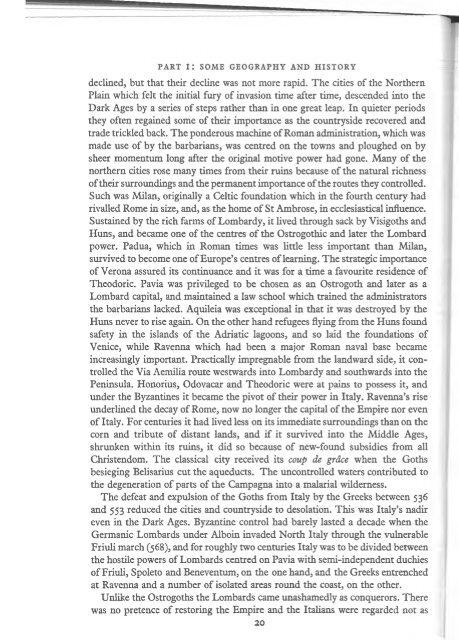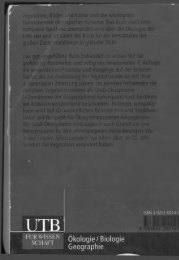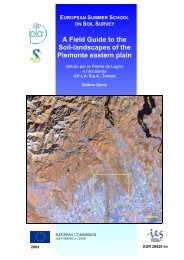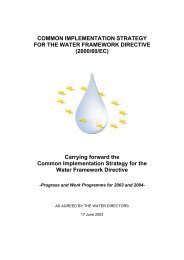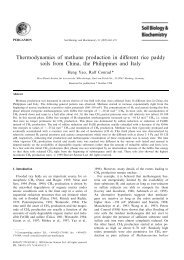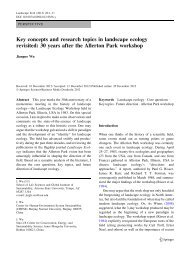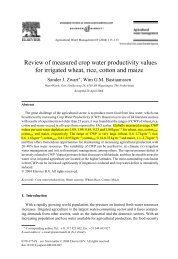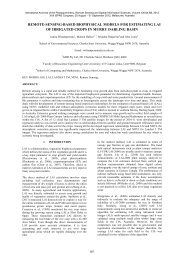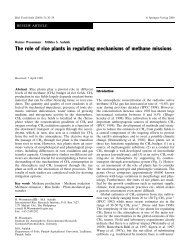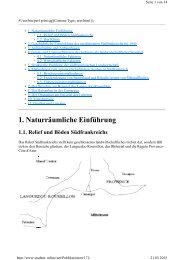Walker - 1967 - A geography of Italy
Walker - 1967 - A geography of Italy
Walker - 1967 - A geography of Italy
Create successful ePaper yourself
Turn your PDF publications into a flip-book with our unique Google optimized e-Paper software.
declined, but that their decline was not more rapid. The cities <strong>of</strong> the Northern<br />
Plain which felt the initial fury o f invasion time after time, descended into the<br />
Dark Ages by a series <strong>of</strong> steps rather than in one great leap. In quieter periods<br />
they <strong>of</strong>ten regained some o f their importance as the countryside recovered and<br />
trade trickled back. The ponderous machine o f Roman administration, which was<br />
made use o f by the barbarians, was centred on the towns and ploughed on by<br />
sheer momentum long after the original motive power had gone. Many o f the<br />
northern cities rose many times from their ruins because o f the natural richness<br />
o f their surroundings and the permanent importance o f the routes they controlled.<br />
Such was Milan, originally a Celtic foundation which in the fourth century had<br />
rivalled Rome in size, and, as the home o f St Ambrose, in ecclesiastical influence.<br />
Sustained by the rich farms o f Lombardy, it lived through sack by Visigoths and<br />
Huns, and became one o f the centres o f the Ostrogothic and later the Lombard<br />
power. Padua, which in Roman times was little less important than Milan,<br />
survived to become one o f Europe’s centres o f learning. The strategic importance<br />
o f Verona assured its continuance and it was for a time a favourite residence o f<br />
Theodoric. Pavia was privileged to be chosen as an Ostrogoth and later as a<br />
Lombard capital, and maintained a law school which trained the administrators<br />
the barbarians lacked. Aquileia was exceptional in that it was destroyed by the<br />
Huns never to rise again. On the other hand refugees flying from the Huns found<br />
safety in the islands o f the Adriatic lagoons, and so laid the foundations <strong>of</strong><br />
Venice, while Ravenna which had been a major Roman naval base became<br />
increasingly important. Practically impregnable from the landward side, it controlled<br />
the Via Aemilia route westwards into Lombardy and southwards into the<br />
Peninsula. Honorius, Odovacar and Theodoric were at pains to possess it, and<br />
under the Byzantines it became the pivot o f their power in <strong>Italy</strong>. Ravenna’s rise<br />
underlined the decay o f Rome, now no longer the capital o f the Empire nor even<br />
o f <strong>Italy</strong>. For centuries it had Uved less on its immediate surroundings than on the<br />
corn and tribute o f distant lands, and if it survived into the Middle Ages,<br />
shrunken within its ruins, it did so because o f new-foimd subsidies from all<br />
Christendom. The classical city received its coup de grâce when the Goths<br />
besieging Behsarius cut the aqueducts. The uncontrolled waters contributed to<br />
the degeneration o f parts o f the Campagna into a malarial wilderness.<br />
The defeat and expulsion o f the Goths from <strong>Italy</strong> by the Greeks between 536<br />
and 553 reduced the cities and coimtryside to desolation. This was <strong>Italy</strong>’s nadir<br />
even in the Dark Ages. Byzantine control had barely lasted a decade when the<br />
Germanic Lombards under Alboin invaded North <strong>Italy</strong> through the vulnerable<br />
Friuli march (568), and for roughly two centuries <strong>Italy</strong> was to be divided between<br />
the hostile powers <strong>of</strong> Lombards centred on Pavia with semi-independent duchies<br />
o f Friuli, Spoleto and Beneventum, on the one hand, and the Greeks entrenched<br />
at Ravenna and a number o f isolated areas round the coast, on the other.<br />
Unlike the Ostrogoths the Lombards came unashamedly as conquerors. There<br />
was no pretence o f restoring the Empire and the Italians were regarded not as<br />
20


